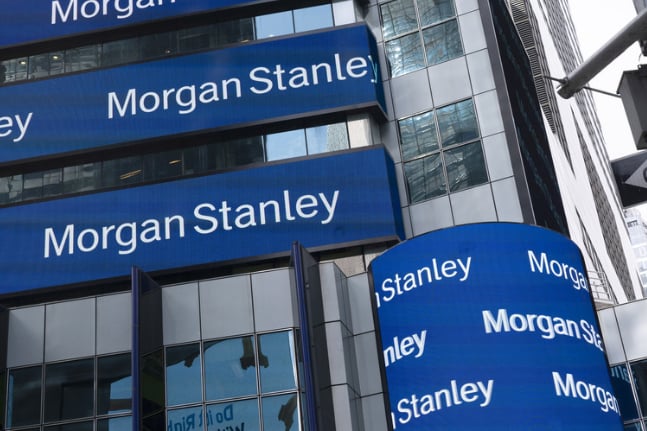May 23, 2025 | 03:17 GMT +7
May 23, 2025 | 03:17 GMT +7
Hotline: 0913.378.918
May 23, 2025 | 03:17 GMT +7
Hotline: 0913.378.918

Morgan Stanley told clients recently that global temperatures could surpass 3 degrees Celsius. | Mark Lennihan/AP.
Make no mistake: The forecasts coming from Wall Street’s leading financial institutions are bleak. But they also point their clients to potential profit-making opportunities from the havoc spreading across the planet, writes Corbin Hiar.
For one thing, Morgan Stanley, JPMorgan Chase and the Institute of International Finance all predict that the world will blaze past the warming threshold that the U.S. and about 190 other nations had agreed to treat as their red line.
The banks don’t believe that governments will prevent global temperatures from rising more than 2 degrees Celsius above preindustrial levels, according to forecasts hidden away in their quotidian investment reports. It’s worth noting Wall Street’s own climate commitments seem to have exited with the Biden administration.
“We now expect a 3°C world,” Morgan Stanley analysts wrote earlier this month, citing “recent setbacks to global decarbonization efforts.”
It’s difficult to understate how catastrophic this warming would be. Each fraction of warming leads to an uptick in the severity and frequency of dangerous heat waves, storms, wildfires and other disasters. Scientists say 3 degrees could lead to the collapse of numerous ecosystems, months-long heat waves, widespread drought and crop failure, mass coral bleaching, rapid ice sheet melting, and other potentially irreversible events.
So where should one invest, given this dystopian future?Air conditioning stock, according to Morgan Stanley. The bank’s analysts predict a 3-degree warming scenario could more than double the growth rate of the $235 billion cooling market, from 3 percent to 7 percent, every year until 2030.
Most of the bank analyses were written after the election of President Donald Trump, who is focused on unraveling U.S. climate policy and boosting fossil fuels, the main drivers of climate change.
While major financial institutions don’t want to be seen as bucking Trump’s fossil-fueled agenda, they have to accurately assess climate risks, take stock of opportunities and make “rational business decision[s],” said Gautam Jain, a former investment banker who is now a senior research scholar at Columbia University.
“These guys are not making assumptions out of the blue,” Jain told Corbin. “They are following the science.”
The math isn’t mathingScientists have warned that permanently exceeding 1.5 degrees could lead to increasingly severe and cascading effects, such as the irreversible deaths of coral reef ecosystems that hundreds of millions of people rely on for food and storm surge protection.
The 2015 Paris Agreement, from which the U.S. is withdrawing under Trump, calls for nations to limit average temperature increases to well below 2 degrees. If possible, it urges them to keep the warming to 1.5 degrees — a target the world is now almost certain to miss despite an abundance of optimistic rhetoric at global climate gatherings.
The Institute of International Finance, which represents about 400 banks in 60 countries, wrote in a recent briefing that the world is not on track to meet either of those goals.
Politico

(VAN) Alt Carbon has raised $12 million in a seed round as it plans to scale its carbon dioxide removal work in the South Asian nation.

(VAN) Attempts to bring down the price of the Japanese staple have had little effect amid a cost-of-living crisis.

(VAN) Fourth most important food crop in peril as Latin America and Caribbean suffer from slow-onset climate disaster.

(VAN) Shifting market dynamics and the noise around new legislation has propelled Trouw Nutrition’s research around early life nutrition in poultry. Today, it continues to be a key area of research.

(VAN) India is concerned about its food security and the livelihoods of its farmers if more US food imports are allowed.

(VAN) FAO's Director-General emphasises the need to work together to transform agrifood systems.

(VAN) Europe is facing its worst outbreak of foot-and-mouth since the start of the century.